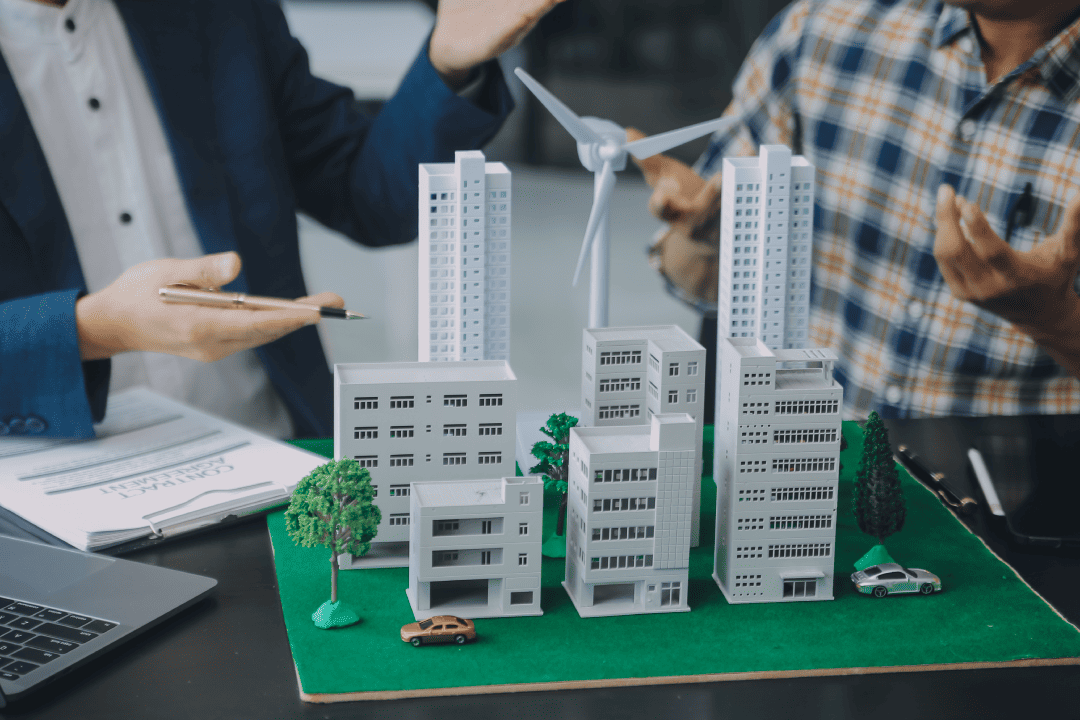Sustainable constructions have become a key necessity in growing cities, where heightened environmental pressure is a significant concern. The design decisions are primarily influenced by energy use, the efficiency of building materials, and the comfort of the occupants in a building. Architects, engineers, and developers demand practical construction strategies that bring measurable outcomes.
BIM, or Building Information Modeling, enables teams to strategize, coordinate, and execute projects with precision, thereby supporting eco-friendly objectives. In this sector, having the help of a skilled BIM expert can support construction projects to make them efficient, reduce waste generation, and offer robust resource management.
BIM plays an integral role in achieving green buildings to support sustainability at its core. In the following sections, we will discuss the key attributes of BIM responsible for sustainable construction that lead to improved project outcomes.

The strategies to integrate BIM into sustainable building are more than meeting compliance. The practice revolves around achieving healthier and highly resilient spaces. Here are a couple of factors that highlight this influence.
BIM simulations provide accurate energy performance data, helping teams optimize HVAC, lighting, and renewable systems before construction begins. Along with BIM coordination services, multiple disciplines can effortlessly collaborate to ensure the seamless operations of systems within the entire construction design.
The feature of evaluating different energy scenarios helps the project teams to use solutions to save costs and reduce carbon footprints. The energy-efficient designs shift from experimental to predictable, making sustainable results reliable and scalable.
Digital precision ensures that the procurement corresponds ideally to the design requirements. This eliminates the scope for generating unwanted surplus. This helps prevent budget overruns, supporting sustainable construction.
Knowledge of the common BIM mistakes to avoid is vital during the planning phase. The errors in the coordination or quantity takeoffs lead to material waste, over-ordering, or rework. Appropriate BIM ensures better material management and cost savings to maintain the eco-friendly standards.
The healthier spaces indoors promote the well-being of the occupants. BIM allows the simulation of natural lighting, airflow, and thermal comfort to improve quality indoors across every room and floor.
The seamless integration with Scan to BIM services helps precision-driven as-built models to inform lighting, ventilation, and acoustics planning. This ensures that the renovation and retrofit projects are meeting the standards of sustainable construction without any guesswork involved.
The BIM models provide facility managers with extensive data on energy use, maintenance schedules, and upgrades. This helps to turn building operations efficient once construction is completed.
Furthermore, avoiding isolated BIM implementation is essential to promote lifecycle efficiency. If BIM is used by specific teams, the valuable data faces a loss that reduces the potential of sustainability. The fully-integrated models help to bring long-term operational success and eco-friendly, responsible management.
BIM eliminates the risk of uncertainties across construction project budgeting. The precision in modeling projects the energy, material, and operational expenditures, turning green initiatives financially achievable.
The design teams assess the varied strategies on sustainability virtually to ensure efficient use of funds while achieving sustainable outcomes. Predictive insights help the firms demonstrate tangible savings.
BIM offers a centralized digital platform that matches the preferences of architects, engineers, and contractors. Shared access ensures that the eco-friendly design objectives stay consistent across every project phase.
Collaboration eliminates design conflicts that help the teams make better decisions. The sustainable strategies, like the responsible material choices and optimized energy systems, are effectively implemented to avoid delays or environmental disruptions.
The initiative taken for early BIM planning is beneficial to the integration of renewable energy solutions such as solar panels, geothermal systems, and wind turbines. The designers model such installations for optimized placement and efficiency.
The approach ensures that the renewable systems function effortlessly with the rest of the building components, offering better energy yield and supporting long-term ecological goals without unwanted trial and error.
Building orientation plays an essential role in promoting energy performance, natural ventilation, and daylight access. BIM enables the simulation of several orientation scenarios for determining the best sustainable option.
The teams can assess the manner in which the building interacts with the wind patterns, sun paths, and shading possibilities. The outcomes lead to reduced dependence on artificial lighting and climate control systems, which have a direct impact on reducing energy consumption.
The BIM models provide data to help facility managers schedule maintenance based on actual building performance, rather than fixed timelines. The proactive approach eliminates the risks of unwanted breakdowns, extending the lifespan of the system.
Long-term sustainability is mainly achieved as buildings start to operate for prolonged periods, reduce waste, environmental impact, and operational expenses. Furthermore, predictive strategies improve the return on investment (ROI) for sustainable systems.
Sustainable construction depends on collaboration, technology, and strategic planning. BIM serves as the cornerstone for achieving energy efficiency, creating occupant-friendly buildings, and promoting resource-consciousness to meet ecological standards.
At Modelo Tech Studio, we provide professional guidance to help teams effectively implement advanced BIM solutions. Our services ensure that the projects meet sustainable goals more efficiently. Contact us today to discover how innovative design and BIM expertise can transform your upcoming construction project!






.png)
We appreciate your interest in our services. To provide you with an accurate and comprehensive quote, we will need some general information about your project. This will help us understand your specific needs and tailor our proposal to meet your requirements effectively.
.png)